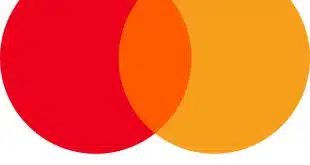Payment card transaction-processing technology developer VeriFone Systems Inc. is betting that consumers might want to play the lottery while they’re semi-idle gassing up their cars or moving around town in a taxicab. The leading point-of-sale terminal maker said on Wednesday that it would test sales of state lottery tickets by debit card in new venues with Linq3 Technologies, a New York City-based specialist in offering electronic lottery sales through ATMs and other unattended locations.
The first test is planned with an undisclosed convenience store/gas station company in Pennsylvania and could begin as soon as the second quarter, Chris Polos, vice president of media at San Jose, Calif.-based VeriFone, tells Digital Transactions News. Beyond fuel pumps at gas stations and c-stores, which are major sellers of state lottery tickets, another new venue VeriFone is considering for lottery sales includes taxicabs. VeriFone already has equipment in more than 14,000 U.S. cabs, including over 6,000 in New York City, that enables riders to watch broadcast television programming and commercials, and pay their fares with general-purpose credit and debit cards.
At gas stations, VeriFone will leverage its payment hardware that also displays digital media. Many stations are adding media displays as they upgrade their fuel pumps to meet new Payment Card Industry data-security standard (PCI) rules. A spokesperson says “thousands” of fuel pumps now have the new VeriFone equipment, but he wouldn’t be more specific.
Polos says VeriFone also is working with cab companies to set up tests that could start before year’s end. If they’re successful, VeriFone might try to extend lottery sales to other unattended payment locations. “It’s really anywhere VeriFone is selling a piece of POS hardware,” he says.
The potential market is a big one: U.S. state lotteries, including the District of Columbia, collectively posted sales of $58.8 billion in 2010, the latest year for which figures are available, up 1% from $58.3 billion in 2010, according to the North American Association of State and Provincial Lotteries (NASPL). Some 200,000 merchants made about $4 billion in commissions from lottery sales that year, the Geneva, Ohio-based NASPL says.
C-stores jealously guard their lottery sales because of the foot traffic they drive and have objected to recent plans by some states to sell lottery tickets online. But Polos and Linq3 executives note that fuel-pump ticket sales would be point-of-sale transactions and, coupled with promotions delivered over the digital media displays, could send more customers into the store. Citing industry research, Linq3 president David L. Tashjian says 70% of c-store customers actually don’t go into the store, so lottery sales at the pump could generate new business from customers who previously never or rarely bought tickets. “It’s not cannibalistic, it’ actually additive,” he says.
Linq3 has relationships with the three major companies that operate all 44 state lotteries (Scientific Games Corp., GTech Corp., and Intralot SA), as well as a number of direct relationships with some states, chief executive Daniel Cage says. Founded four years ago, the company has been building a network that in addition to the lottery companies and states includes four ATM processors and merchant acquirer WorldPay, he says. Last week, the Minnesota State Lottery and Linq3 announced a pilot program to dispense Powerball and Mega Millions tickets at 70 ATMs in the Minneapolis-St. Paul area.
The Linq3 system currently takes only debit cards, including PIN-based ones, but not credit cards. It sells only so-called draw-lottery games, not scratch tickets. Polos says the VeriFone fuel pumps will allow only for “quick-pick” ticket sales and won’t permit potentially time-consuming number choices by players. The media display will show the games available and enable the customer to select the number of tickets to be purchased. No actual paper ticket is dispensed; instead the pumps will print a receipt or send one by text message to the customer’s mobile phone. Actual numbers will be stored in Linq3’s system.
Winners will be notified automatically, and winnings of up to $600 will be deposited directly into their demand-deposit accounts through debit card processing channels, Polos says. VeriFone will get a transaction-based share of the retailer’s commission revenue.





